Amazing! After the recent appearance of several "zero amp glow" ZWO cameras, such as the ASI2600MC-PRO, here is the monochrome version of the 2600 series, another "zero amp glow" camera with the same APS-C sensor, 16 bit ADC, huge dynamic range and a pixel size that would suit many small to medium sized amateur APO telescopes (or small SCTs etc.)
The ASI2600MM Pro uses Sony’s latest back-illuminated IMX571 APS-C format native 16-bit ADC sensor. It has an ultra-high 14 stops dynamic range, ultra-low 1.0e readout noise and an innovative breakthrough resulting in zero amp-glow. It is a camera born from the appeal of astrophotography lovers.
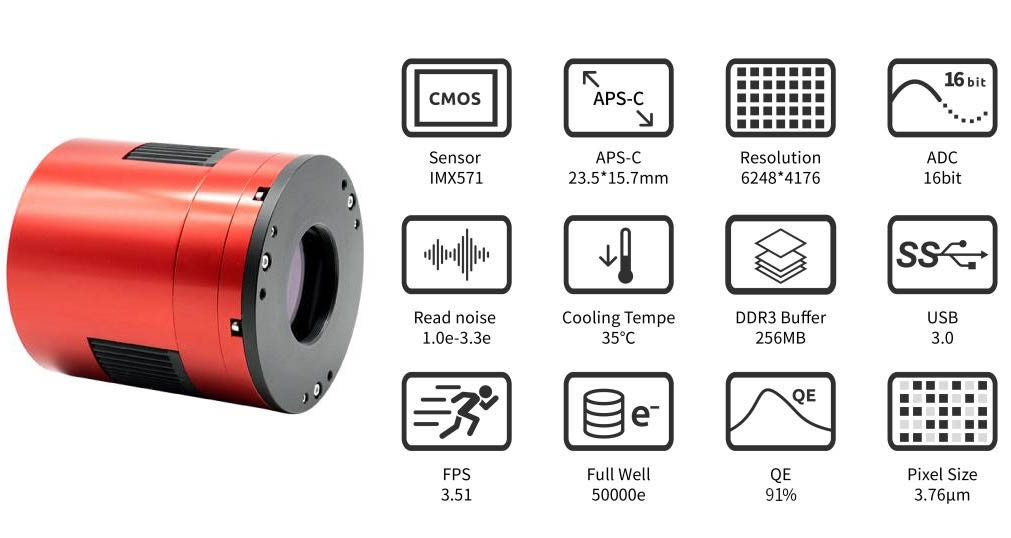
Amazing Craftsmanship, Lightweight body, Solid image quality:
We have been working hard to reduce the weight of the camera while improving the performance of the camera. After years of technical accumulation and repeated weight loss experiments by ZWO engineers, ZWO finally concentrated the ASI2600 to 0.7KG.
APS-C format:
The ASI2600MM Pro uses APS-C format, the sensor length and width are 23.5mm * 15.7mm and the diagonal is 28.3mm. This is a 26MP camera with a small pixel size of 3.76um that can accommodate a large well depth of 50ke.
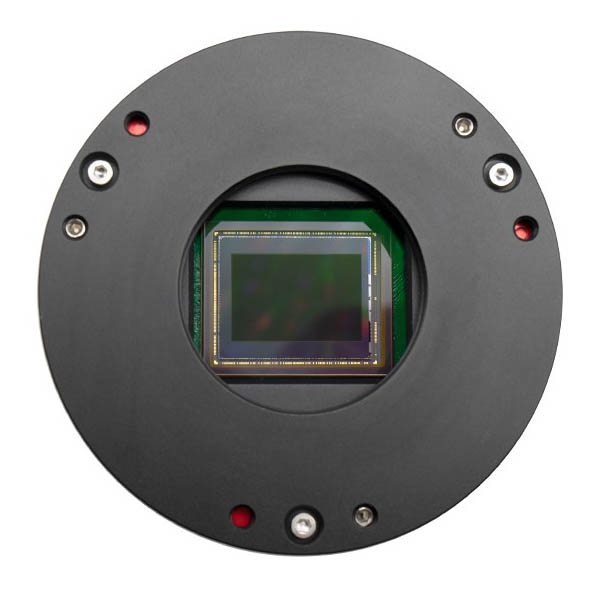
Native 16bit ADC:
As one of the few CMOS astronomy cameras with 16bit ADC in the market, ASI2600MM Pro was born with superiorities for astrophotography. This 16bit ADC is not a CCD 16bit ADC. It can really achieve a dynamic range output of 14 stop, which will significantly improve the image sharpness and contrast, also create smoother and more natural color transitions.

IMX571 backlit sensor:
Sony’s back-illuminated CMOS image sensor improves sensitivity and noise reduction – the key factors to enhancing image quality, while radically realigning their fundamental pixel structure from front-illumination to back-illumination. It has retained the advantages of CMOS image sensors such as low power consumption and high-speed operation.
With a conventional front-illumination structure, the metal wiring and transistors on the surface of the silicon substrate that form the sensor’s light-sensitive area (photo-diode) impede photon gathering carried out by the on-chip lens. A back-illuminated structure minimizes the degradation of sensitivity to optical angle response, while also increasing the amount of light that enters each pixel due to the lack of obstacles such as metal wiring and transistors that have been moved to the reverse of the silicon substrate.
Sony has newly developed a unique photo-diode structure and on-chip lens optimized for back-illuminated structures, that achieves a higher sensitivity and a lower random noise without light by reducing noise, dark current and defect pixels compared to the conventional front-illuminated structure.

Camera Performance
The ASI2600MM Pro has excellent performance with a dynamic range of up to 14stops. When the gain value is 100, the magical HCG high gain mode is turned on, the readout noise is greatly reduced, and the dynamic range is basically unchanged. For better date quality, it is recommended to set the gain to 0 or gain 100 during deep-sky imaging.
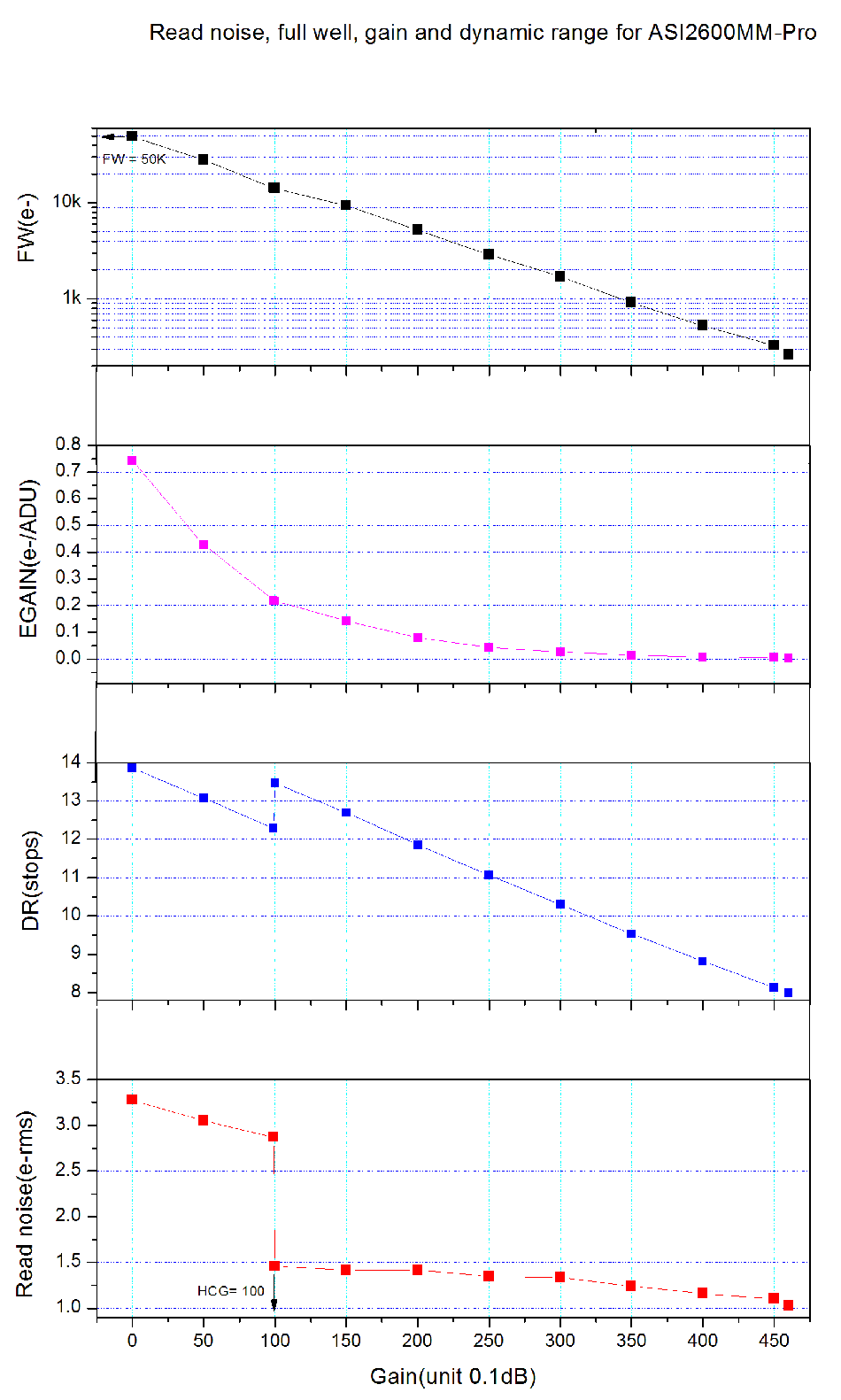
Zero Amp Glow
Traditional CMOS sensors produce a weak infrared light source during operation quite often seen in the corner of uncalibrated images as the tell-tale signs of ‘amp glow’. As the ASI2600MM Pro uses zero amp glow circuitry, you won’t have to worry about amp glow even when using high gain, long exposure imaging.
With amp glow – exposure 300 second exposure
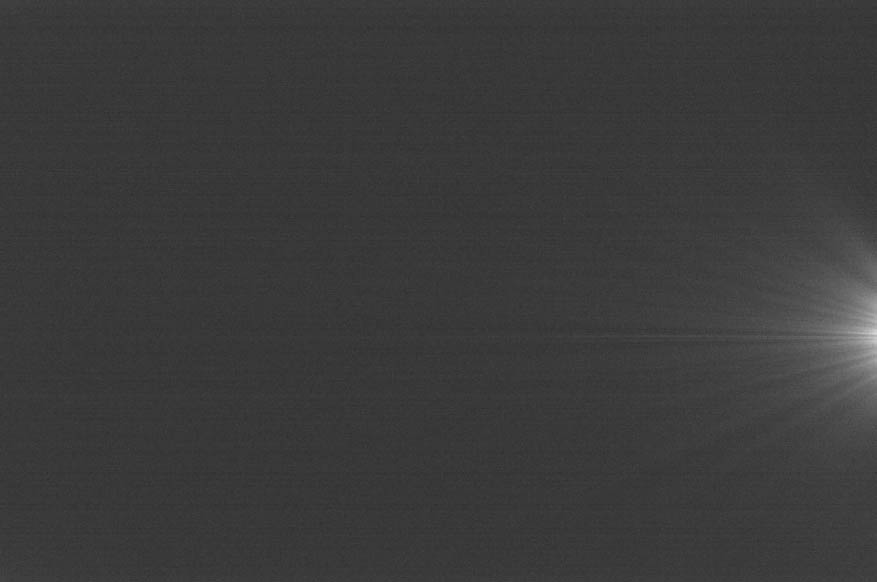
ASI2600 frame with no amp glow – Exposure 300 second
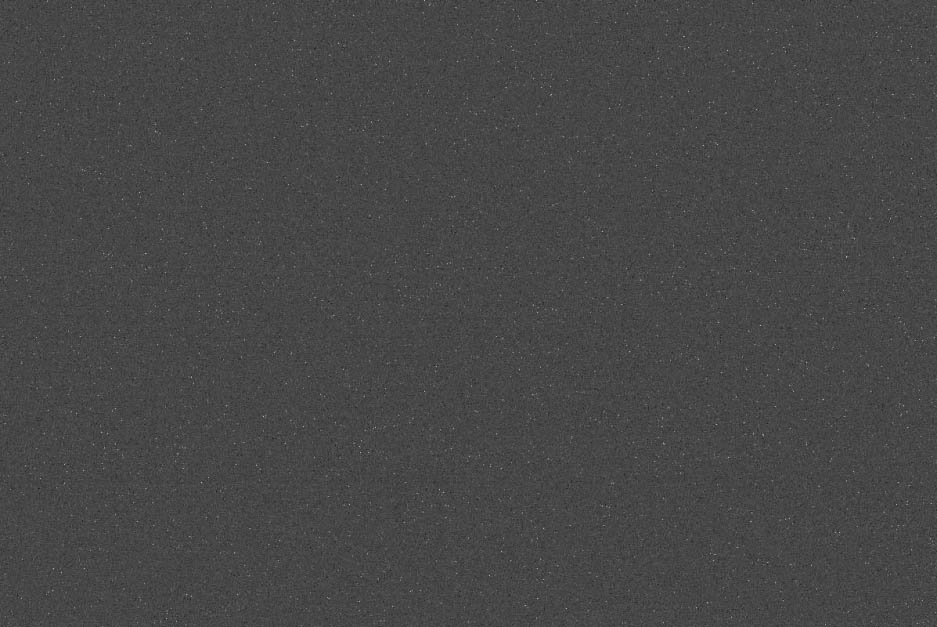
Anti-dew:
There is a polyimide heater completely fitting the protective window in the ASI2600MM Pro camera. It can help avoid the annoying dew or icing issues.
The power of the heater is around 5W. You are free to turn it off anytime in your photography software if you want to save some power.
QE value:
According to the test results of Sony, the QE peak value of the ASI2600MM Pro is appr. 91%
Two-stage TEC cooling, ultra-low dark current:
Thanks to the two stage TEC cooling, ASI2600MM Pro can lower the CMOS sensor temperature to more that 35c below ambient, which can greatly reduce dark current generation and sensor noise even with extended exposure times.
The unique dark current suppression technology can even further reduce dark current noise. At a cooling temperature of 0 °, the dark current noise is only 0.0022e/s/pix. Which means 300s exposure can only cause 0.7e dark current noise, which is less than the readout noise. While at a cooling temperature of -20 °, the dark current can even reduce to 0.00012e/s/pix, which is completely negligible!
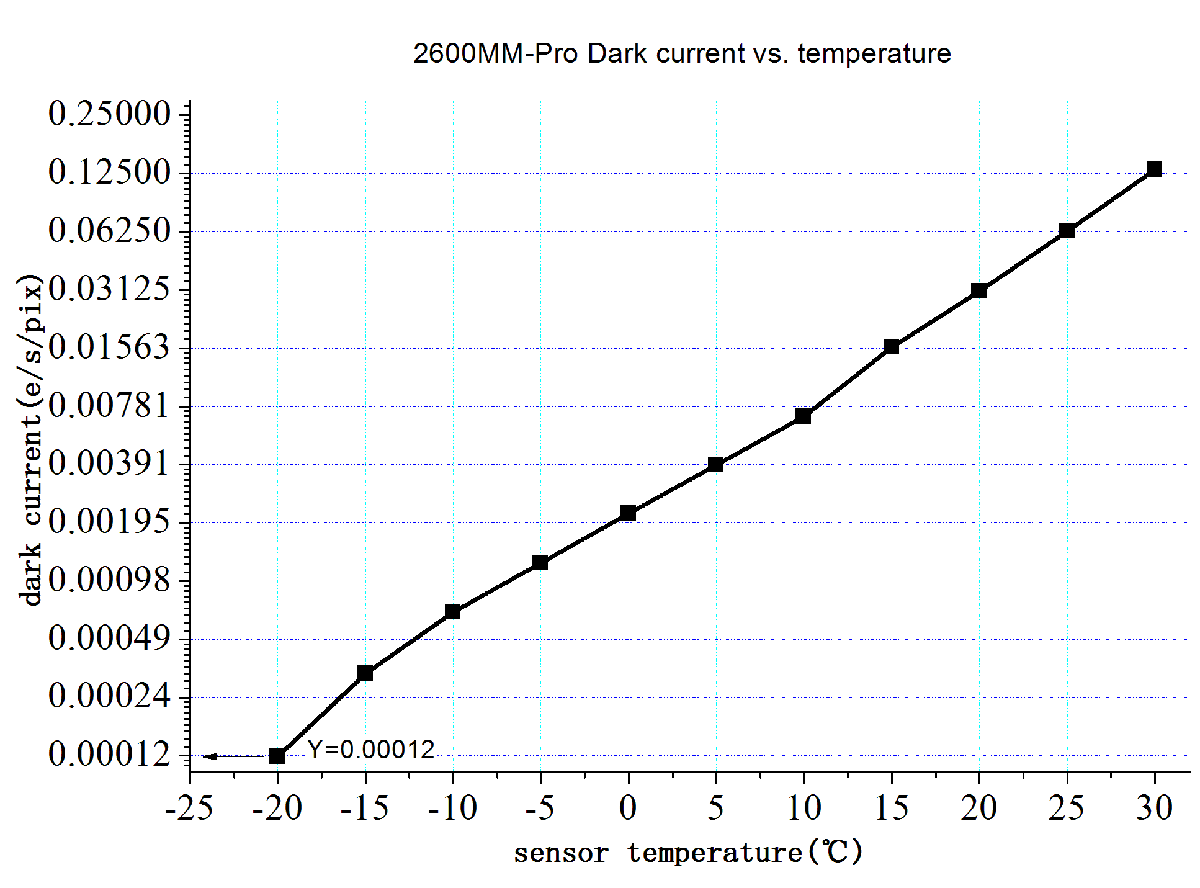
USB3.0 & 256MB DDR3 Memory Buffer
The ASI2600MM Pro is equipped with a USB 3.0 transmission interface and a built-in 256MB DDR3 cache to ensure stable and secure data transmission. Under long exposure, it effectively avoids frame dropping and greatly reduces the glow effect caused by slow reading speed.
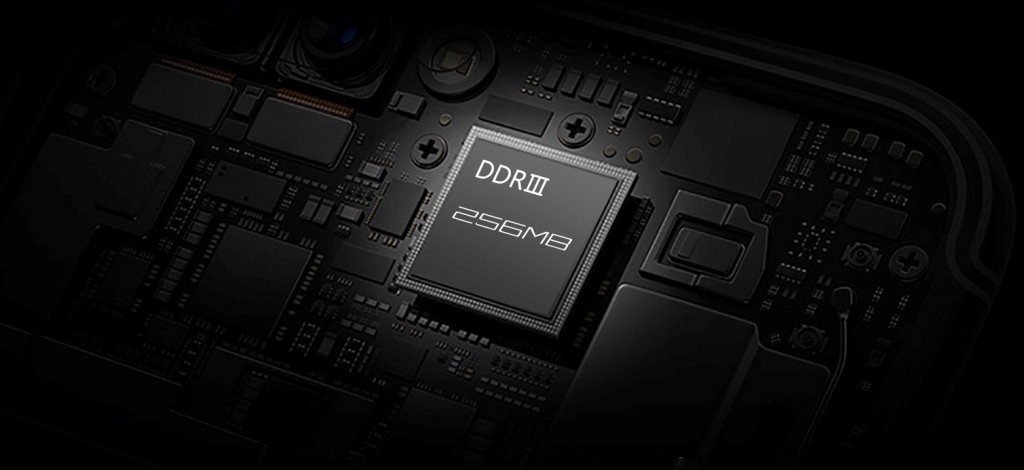
Mechanical Diagram
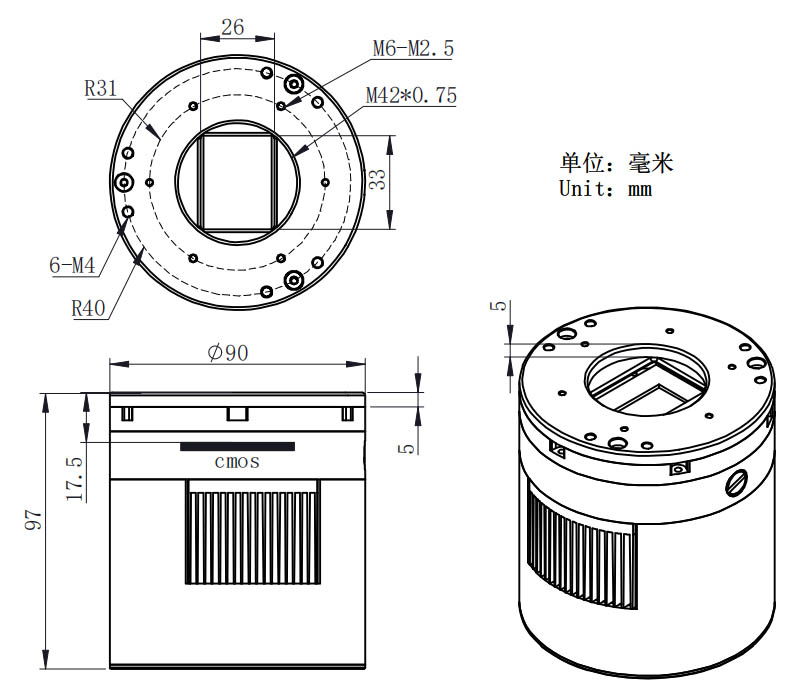
What's in the box
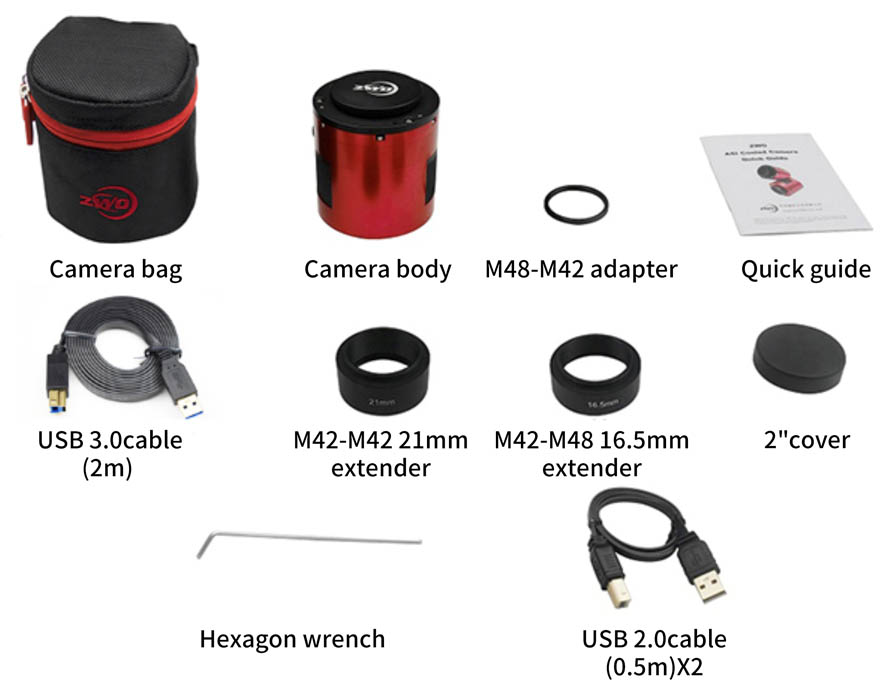


















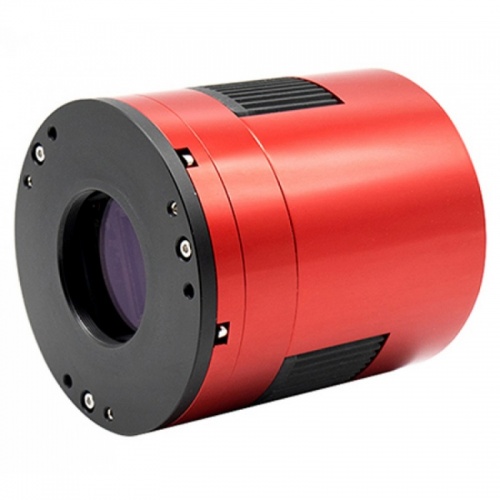
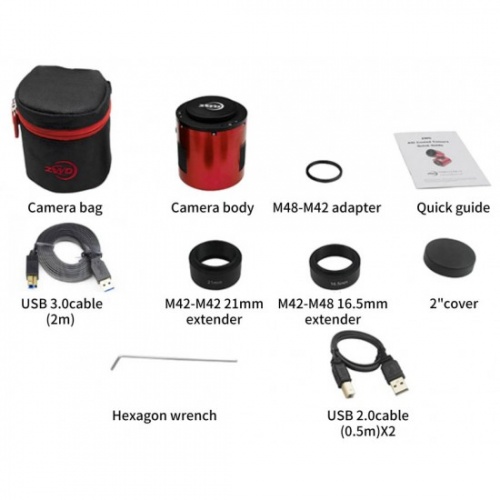

 Fast & Reliable Delivery
Fast & Reliable Delivery Helpful & Friendly Staff
Helpful & Friendly Staff Best Prices Online
Best Prices Online 100% Secure Shopping
100% Secure Shopping